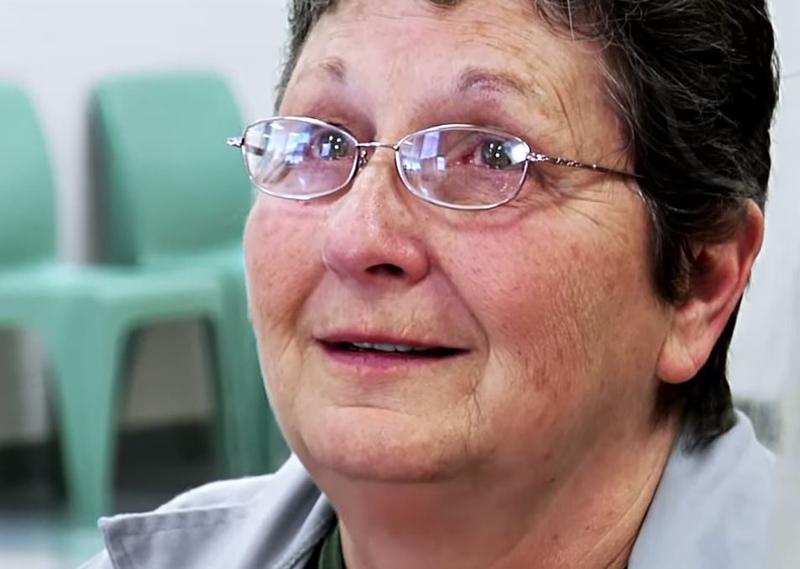Missouri Women: Justice For Victims Of Abuse | A [Legal Case] Story
Can justice truly be served when the scales are weighed down by years of abuse and societal judgment? The cases of Shirley, Carlene, and Ruby, three women ensnared in the Missouri justice system, highlight a complex web of domestic violence, legal battles, and the enduring struggle for freedom.
The Supreme Court of Missouri, in its en banc session, grappled with cases that unearthed the dark underbelly of domestic violence. Rules from 1979, now codified as Rule 30.04(c) and (d), played a crucial role, especially when considering the duty owed by the court.
The harrowing stories of these women paint a grim picture. Shirley, Carlene Borden, and Ruby Jamerson, each faced unimaginable horrors at the hands of their husbands. They were subjected to brutal beatings, sexual assault, and psychological torment. In some instances, the abuse escalated to the point where their lives were directly threatened. The local press, however, failed to see the full picture. Instead, they cast these women as savage murderers, further compounding their suffering and fueling public animosity. Their trials, bereft of crucial evidence of the years of abuse, led to sentences that seemed to erase any hope of freedom.
For over three decades, Carlene Borden, now 65, and Vicky Williams, 55, languished in prison for the murders of their abusive husbands. Their sentences were severe: life without the possibility of parole for fifty years. These rulings, handed down without any consideration of the years of torment they endured, raised questions about the fairness and impartiality of the legal system.
The case of Carlene Borden, in particular, became a focal point. In 1978, prosecutors alleged that Borden, along with her lover, shot her husband as he relaxed in a chair. The evidence of her prior suffering was not presented, which contributed to the guilty verdict and the harsh sentencing. Years later, the case continues to serve as a case study of the criminal justice system's imperfections, particularly its treatment of women victims of domestic violence.
Amy Lorenz Moser, acting as the attorney for Vicky Williams and Carlene Borden, has worked tirelessly to advocate for their freedom and expose the injustices they faced. Her presence in the media, seeking to clarify the facts, has brought much-needed attention to the cases. Despite the claims made by some relatives, Moser continues to argue that the horrific abuse each of these women suffered is key to understanding the tragic events that followed.
The legal battle was not confined to the courtroom. After the law changed to acknowledge the context of domestic violence, these women's fight took on a new shape. They were determined to fight the parole system, which had repeatedly failed them. The clemency project stepped in, striving to secure a pardon for Borden. After spending 32 years in prison, Carlene was granted parole. Similarly, Vicky Williams, and Ruby Jamerson also sought release. These developments were not victories alone but steps forward in a long, difficult journey toward freedom and recognition.
The Missouri Board of Probation and Parole finally granted freedom to Carlene Borden and Vicky Williams. Their lawyers have announced that they would be released on Oct.
The case of Ruby Jamerson, convicted of hiring two teen boys in 1988 to fatally stab her husband, further complicates the narrative. Although her actions are in question, the abuse she reportedly suffered may have influenced her decisions. The details surrounding her case highlight the complexity of seeking justice in such circumstances.
The role of the media in these cases is also worth examining. Through the years, the local press often portrayed these women as ruthless criminals, making it difficult for them to receive a fair trial. The media's portrayal, failing to incorporate the nuances of domestic violence, contributed to the public's negative perception and the severity of their sentences.
The incident that led to Carlene Borden's conviction took place more than three decades ago. The exact events have become a part of legal arguments, but the core issue is the decades of abuse Borden faced. The impact of the murder of Delbert Borden is at the core of the legal battle.
Rule 81.12 (a), relevant under rule 28.18, and the 1979 rules now classified as rule 30.04 (c) and (d), further highlights the legal framework surrounding these cases. The court's responsibilities cannot be fulfilled by merely transmitting information prepared by the court reporter. These rules underscore the need for comprehensive legal processes to ensure that justice is served, and the victims' stories are fully and fairly considered.
| Person | Details |
|---|---|
| Carlene Borden | Convicted in 1978 for the murder of her husband, Delbert Borden. Served 32 years in prison before being granted parole. Facing years of physical and psychological abuse by her husband. |
| Vicky Williams | Incarcerated for the murder of her abusive husband. Released on parole. |
| Ruby Jamerson | Convicted of hiring two teen boys to fatally stab her husband in 1988. Scheduled for release in 2013. Reported abuse by her husband. |
| Amy Lorenz Moser | Attorney for Vicky Williams and Carlene Borden. Advocate for the women, aiming to shed light on their cases and push for freedom. |
| Delbert Borden | Husband of Carlene Borden, murdered by her and her lover. |
| Donald Wayne Pilkerton | Lover of Carlene Borden. |
Reference: For more information and other relevant legal proceedings, check the records of the Missouri Courts.
The case of Roberta Borden and her accomplice, Donald Wayne Pilkerton, further highlights the intricacies of these events. Thirty years ago, the pair approached the Borden family home, which led to the tragic death of her husband. The shot that took his life went directly through his heart. Roberta Borden's conviction resulted in a 50-year prison sentence. Bordens trial and conviction underscores the importance of a fair trial.
The legal journey of these women has been long, marked by repeated struggles against a legal system that often failed to recognize their victimization. The parole board and the local media had a significant impact on these cases. Now, their lawyers and supporters hope to use the law to make sure that their voices are heard.
The fight for the freedom of Shirley, Carlene, and Ruby underscores the need for a justice system that is both impartial and compassionate. It requires careful assessment of the circumstances, specifically cases of domestic violence. The case of these women provides an opportunity for society to reconsider its views on justice, abuse, and the ways in which vulnerable people are treated within the legal system.

Carlene Borden Movies, Bio and Lists on MUBI

Abused & Behind Bars The Takeaway WQXR

Albuquerque Worklab Open House